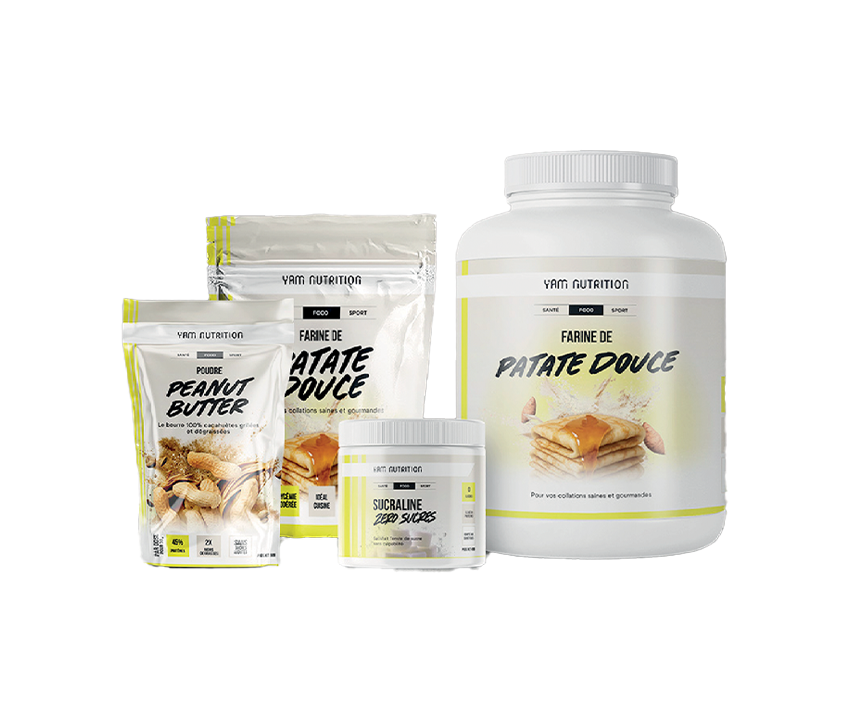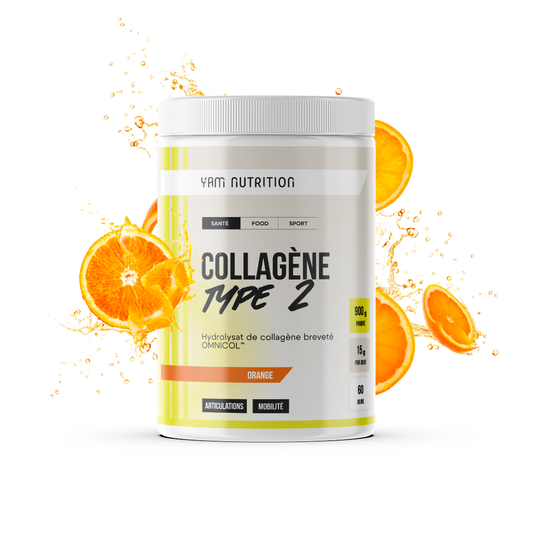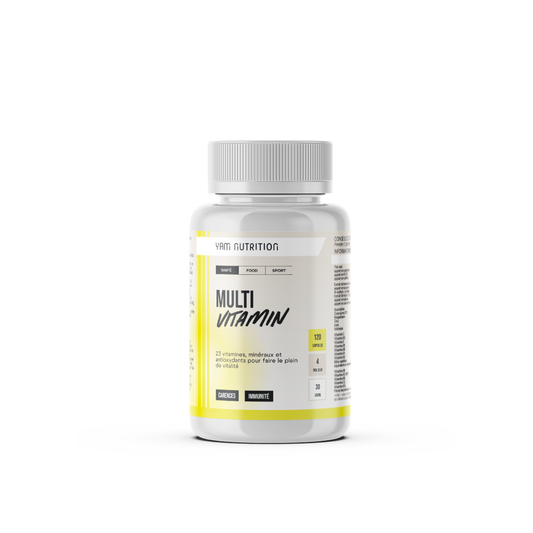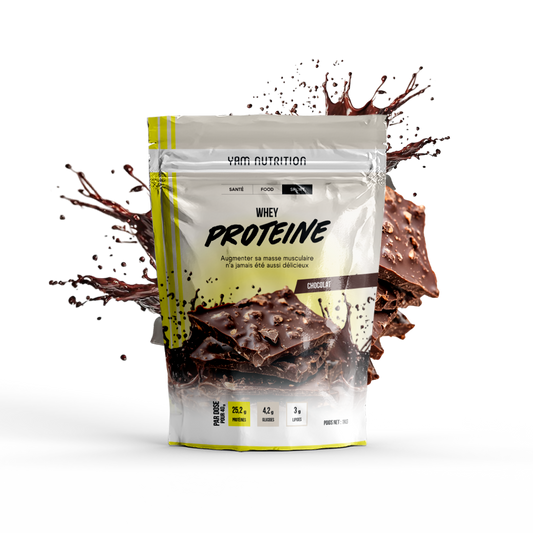Plant-Based Protein for Vegans: Everything You Need to Know

Sommaire
- Introduction to Plant Proteins
- Anabolism or catabolism depends on nitrogen retention linked to amino acid and protein intake
- Importance of protein in a vegan diet
- Common Sources of Plant Protein
- Soy is the primary source of plant protein that can be assimilated by the human body.
- Legumes and cereals provide high-quality plant-based protein for vegan athletes.
- Benefits of Plant Protein for Vegans
- Nutritional Profile and Health Benefits
- Environmental impact and sustainability
- Understanding Protein Needs for Active Vegans
- Specific protein needs for vegan athletes
- Common Myths About Protein and the Vegan Athlete Diet
- The amino acid composition of protein-rich plants complements each other...
- Incorporating Plant-Based Protein Powder into a Vegan Fitness Diet
- Plan your meals and snacks from plant-based food sources
- Vegan Protein Shake Recipes and Ideas
- Choosing the Right Plant-Based Protein Powder for Vegan Athletes
- Criteria for selecting a protein powder for vegans (quality, taste, composition)
- Why choose Opti-Vegan?
- Maximizing the effectiveness of plant proteins
- Food combinations for better absorption
- Ideal timing and amounts for protein consumption
- Advice from experts and sports nutritionists
- Conclusion
Introduction to Plant Proteins
When athletes talk about protein, they only touch on the surface. So let's try to take a step back. Whether it's plant or animal protein, the processes of amino acid synthesis and retention are identical. Literally, a protein is a nitrogen store since amino acids have an amine base NH2 associated with a carboxylic group COOH as well as a radical. Initially, nitrogen is present in the atmosphere before being fixed in plants. The first amino acids are therefore of plant origin, despite the displeasure of carnivores... The animal feeding on plants feeds mainly on proteins of plant origin while it will also synthesize the amino acids it needs. In relation to nitrogen itself, the nitrogen balance determines in humans the state of anabolism (muscle gain) or muscle catabolism (muscle loss).
OMNICOL™ Patented Collagen Hydrolysate A complex of 23 vitamins, minerals and antioxidants to boost your vitality Building muscle mass has never been so delicious
Collagen Type 2 Powder
Sale price
49,90 €
Multivitamin
Sale price
29,90 €
Whey Protein
Sale price
From 37,90 €
Anabolism or catabolism depends on nitrogen retention linked to amino acid and protein intake
In other words, if your body releases more nitrogen than it retains, it means you are losing muscle. Conversely, if your body retains more nitrogen than it releases (and therefore amino acids and proteins), your body synthesizes Muscle mass . Furthermore, plant proteins or amino acids from plants are strictly identical to the amino acids found in animal proteins. This is a given. So, whether you are vegan or a carnivore, an optimal nutritional intake of protein is necessary for muscle maintenance and growth.
Importance of protein in a vegan diet
A vegetarian diet will not necessarily be high in protein if the dietary intake are not chosen carefully. A large number of vegan foods, plants, cereals and legumes contain a significant proportion of protein. However, these are sometimes incomplete or more difficult to assimilate due to the high presence of fiber. But even if plant sources of protein sometimes present a relative deficiency in amino acids, it is quite obvious that vegetarians (athletes or sedentary) do not consume only one source of plant protein during the day. Naturally, dietary variety is a rule, as much for vegans as for omnivores or carnivores. In this way, all essential amino acids and non-essential are provided to the body over the course of a day.
As we said above, what differentiates plant proteins from animal proteins is mainly the abundance of fiber they contain. Thus, fiber could reduce or slightly delay the assimilation of plant proteins, which explains why vegans consume slightly more protein foods. to compensate for this slight disadvantage. Obviously, an amino acid of plant or animal origin makes no difference. These are always amino acids whose structure is that of an amine base NH2 or NH3, a carboxylic base COOH and a radical that changes depending on each amino acid.
Common Sources of Plant Protein
Nature contains a large number of plants that provide proteins and amino acids. Among these, algae and other cyanobacteria such as spirulina and chlorella contain the highest amount of protein, since more than 60% of their nutritional intake is made up of it. But despite these exceptions, plants and protein-rich plants contain on average between 20 and 30% of the nutritional total, which also corresponds to the average for animal-based proteins. In other words, many edible plant foods have a protein percentage as high as animal sources.
Soy is the primary source of plant protein that can be assimilated by the human body.
Soybean is a legume well known for its high protein content since it is the oldest protein powder processed food on the market. On an industrial level, obtaining a soy protein isolate powder is particularly simple, unlike the high protein milk protein isolates we obtain today. Similarly, soy derivatives such as tofu and other preparations based on this legume provide a significant amount of assimilable protein. In fact, soy concentrates around 35% protein, which is remarkable for a plant-based protein source. This is all the more appreciable since soy provides you with all the essential amino acids, a very important criterion for vegans. Soy also has other benefits, particularly on cholesterol balance and the prevention of cardiovascular disease. A protein source favored by vegan athletes, soy is also very popular with omnivorous athletes .
Legumes and cereals provide high-quality plant-based protein for vegan athletes.
Vegan sedentary people and athletes get the majority of their plant-based protein from legumes and grains. Pulses such as lentils (red, green, etc.), fava beans, kidney beans, chickpeas, or split peas provide 20 to 25 grams of protein per 100 grams. For example, fava beans provide 25 to 26 grams of protein on average, split peas provide 24 grams per 100 grams. Naturally, they provide vitamins , minerals and trace elements as well as antioxidants necessary for the health of the body. On the other hand, the most common vegetables in our diet provide very little, between 3 and 5 g per 100 grams. This quantity is really negligible from a nutritional point of view.
Similarly, fruits mainly provide water, minerals and antioxidants, while dried fruits such as almonds, pistachios or Brazil nuts also contain a significant amount of protein, between 18 and 23 grams on average. The richest of these is the peanut, or groundnut, which can provide 23 grams. In other words, the peanut is truly the queen of the aperitif, provided that it is not salted and consumed in moderation because it is very calorie-dense. Its contribution in omega 9 fatty acids, however, remains very interesting for health.
Many grains also have significant protein levels for vegans. This is the case, for example, for spelt, a grain older than wheat and which contains 15% protein. Barley provides 13% while quinoa contains 16% on average. Naturally, pasta is made from wheat. It gives you between 12 and 15 grams of protein per 100 grams. Rice provides little, around 7 to 8%, which remains fairly insignificant. On the other hand, rice protein powder provides a high concentration of protein (80% on average) with a complete intake of essential amino acids. Therefore, food should not be confused with concentrated protein powder.
Benefits of Plant Protein for Vegans
While plant fibers contribute to intestinal transit, it should also be remembered that foods of plant origin contain a large number of B vitamins , vitamin A, E, K as well as a phenomenal amount of antioxidants such as polyphenols, flavonoids and others. On the other hand, plants and cereals are low in vitamin B12 (cyanocobalamin or methylcobalamin), which is always a limitation for vegan diets. Similarly, plants are relatively low in iron and zinc, two trace elements essential to the health of vegetarians, sedentary people and athletes. On the other hand, diets that are essentially carnivorous provide iron and zinc but very few antioxidants and B vitamins. This partly explains why meat lovers have every interest in consuming fruits and vegetables in good quantities in order to maintain their health. On the other hand, vegans will benefit greatly from taking a multivitamin food supplement providing iron, zinc and vitamin B12 in the form of methylcobalamin for example.
Nutritional Profile and Health Benefits
Food sources of vegetable proteins offer many health benefits for vegans. For example, the soluble and insoluble fiber provided by plant-based protein sources is a significant asset for vegans and omnivores alike. They also provide short-chain fatty acids, the health benefits of which are still being studied by scientific research. They also provide all nine essential amino acids from a varied diet. In addition, they also have the advantage of being low in saturated fat, with a balance of omega-3s often favorable compared to omega-6s. On the other hand, animal protein sources are often too high in saturated fats and omega-6 fatty acids compared to omega-3s.
Food sources of plant protein also have the advantage of providing minerals such as calcium, magnesium, phosphorus and others, despite being relatively poor in iron. They are also a remarkable source of trace elements, zinc, chromium, manganese and many others…
Similarly, plants and vegetables are rich in B vitamins such as thiamine (vitamin B1), riboflavin (vitamin B2), niacin (vitamin B3), pantothenic acid (vitamin B5), pyridoxine (vitamin B6), folic acid (vitamin B9) and cobalamin (vitamin B12). Vitamin E and C are also present but in smaller quantities. Oils are richer in vitamin E while citrus fruits are excellent sources of vitamin C (ascorbic acid).
Environmental impact and sustainability
The ever-increasing consumption of protein is easily explained by the increase in the world population. In fact, animal sources of protein (red meat, white meat, fish, etc.) are constantly increasing. As a result, livestock farming is often accused of increasing the release of greenhouse gases, particularly CO2. However, this is rather a false problem given that carbon dioxide levels are far from being the only cause of global warming. Quite the contrary, CO2 plays an integral role in photosynthesis as well as the growth of the plants we eat. On the contrary, it is more a question of promoting animal welfare, a much fairer and more honest cause from an ethical point of view. Thus, it would be a question here of encouraging the consumption of plant sources of protein, for several reasons.
First of all, it is about the health of consumers because an excess of saturated fats and the calories that accompany them are vectors of cardiovascular diseases, diabetes, overweight , cancers or obesity. A higher intake of plant-based proteins thus leads to a reduction in daily calories, a higher intake of fiber with better intestinal transit and better general health. Indeed, edible plants and vegetables are our main sources of key micronutrients such as vitamins, minerals, trace elements and antioxidants that protect our cells. For health and well-being, legumes and cereals should therefore take on more importance in the diet of omnivores, like vegan consumers.
Understanding Protein Needs for Active Vegans
Active and athletic vegans have the same nutritional needs as omnivores in terms of protein. This means they must obtain all the essential and non-essential amino acids necessary for their metabolism. However, the bioavailability of plant-based proteins is slightly lower than that of animal proteins, particularly because fiber can reduce their intestinal absorption. This explains why active and highly athletic vegans consume more plant-based foods to compensate for this slight inconvenience.
THE nutritional needs The protein intake of active vegans is, however, identical to that of omnivores because there are no physiological and metabolic differences between individuals, whether they are vegan or not. So, if you are vegan and active, and you practice a sport regularly, your protein needs will be roughly the same, that is to say, they will be between 1.5 and 2.2 grams of protein per kilo of body weight on average. Soy and protein-rich legumes can be consumed to reach this daily quota. Naturally, we would advise you to combine it with a protein powder composed of several types of plant-based proteins such as lentils, chickpeas or black beans to supplement your protein intake on a daily basis. To this end, our Opti-Vegan plant-based protein powder is a balanced blend of pea and rice proteins with added plant-based amino acids, including methionine and leucine. With its exceptional taste, Opti-Vegan truly stands out from other competing products. Drinking Opti-Vegan, you'll have a hard time telling it's still a plant-based protein...
Specific protein needs for vegan athletes
Just like with other diets, vegan athletes must meet their nutritional needs in carbohydrates, proteins, and fatty acids, as well as vitamins, minerals, and antioxidants. Thus, vegan meals, when well-prepared, should allow vegan athletes to achieve the best possible performance. Specifically, vegan athletes must therefore be careful to vary their sources of plant-based protein, given that certain legumes or grains have relative amino acid deficiencies. However, the deficiencies of one are compensated for by the intake of the other. Thus, vegans can combine legumes with grains to avoid all forms of nutritional deficiencies.
Common Myths About Protein and the Vegan Athlete Diet
There are many myths surrounding the vegan diet. The first of these is based on inconsistencies that are superstitious and have no relation to reality. For example, it consists of distinguishing between the amino acids found in plants and those found in foods of animal origin. In reality, there is no difference between the two. amino acid of arginine or histidine will be strictly identical, whether they come from a plant or an animal. In addition, the quantities of proteins present in plants are equivalent, or sometimes even higher, than for animal sources of protein.
Then, in terms of digestion, it is true that the presence of fiber could slow down the assimilation of proteins. However, the digestibility of plants differs little from that of foods of animal origin. However, fairly recent clinical studies affirm that plants, cereals and legumes, when consumed as part of a diet, do not present any particular difficulties in digestion and that amino acids are perfectly used by the body. Similarly, omnivores consume, even without being really aware of it, a significant quantity of proteins of plant origin when their diet is sufficiently rich and varied.
The amino acid composition of protein-rich plants complements each other...
Another very common myth related to plant-based proteins concerns their essential amino acid profile. This is particularly the case for sulfur-containing amino acids like cysteine, methionine, and lysine. However, the relative amino acid deficiencies of grains are compensated for by the contributions of legumes, and vice versa. Well-designed vegan diets naturally combine several types of plant-based proteins. Therefore, nutritional deficiencies in amino acids are rare, no more so than they are for omnivores. This is also the case for vegan bodybuilders, who are able to ensure a diet with sufficient protein to stimulate their muscle growth.
Incorporating Plant-Based Protein Powder into a Vegan Fitness Diet
Vegans are generally no more concerned about their protein intake than omnivores are when they are sedentary. However, when they engage in regular physical activity, they seek to optimize their nutritional protein intake, especially if they do regular strength training. Breakfast may be the most complicated meal in terms of protein if you are vegan, that is, a plant-based diet and not a vegetarian. In this case, eggs and milk are excluded. Thus, you will find plant-based proteins in mueslis and cereals, but you could also make yourself an Opti-Vegan shake to supplement your protein intake first thing in the morning. Opti-Vegan's taste is exceptional and surpasses a vast majority of competing plant-based proteins. You'll easily see for yourself.
Plan your meals and snacks from plant-based food sources
Meals and snacks should provide a variety of plant-based protein sources to ensure all essential amino acids are met throughout the day. For example, grains, legumes, and other forms of plant-based protein should be consumed in the morning, midday, and evening. If you're strength training, an Opti-vegan shake can be consumed two hours before a workout, right afterward, or in the evening before bed. This type of protein snack, made from pea and rice protein, will provide you with amino acids when you need them most.
Your meals can provide different forms of plant-based protein such as peas, lentils, soy, or grains such as corn, barley, rye, quinoa, soy, or oats. Dried vegetables such as split peas, peas, or chickpeas can also be eaten at lunch or dinner. The key is always to vary your food intake to ensure a complete diet into essential and non-essential amino acids.
Vegan Protein Shake Recipes and Ideas
Vegan protein shakes are particularly well-suited to making smoothies or shakes to which fruit is added. In this case, we recommend using a blender or a powerful mixer to obtain a smooth and creamy mixture, rather than a simple shaker. For example, if you use Opti-Vegan strawberry flavor, simply add a few strawberries to your blender. Red fruits, blueberries, blackcurrants, or raspberries will add even more flavor to your shake, making it a delicious protein smoothie. These types of very simple recipes will bring a very appreciable plus in terms of taste and nutritional quality to your vegan shakes!
If you like the vanilla caramel flavor, adding some hazelnuts, walnuts, or almonds, depending on your preferences, will transform your already delicious shake into a real treat. If you've opted for the cocoa flavor, adding a little coffee powder, cinnamon, banana, or a few strawberries will transform your shake while giving it a few extra healthy calories. For example, if you're bulking up, an Opti-vegan cocoa shake with hazelnuts, banana, and peanut butter will also provide you with additional protein and Omega 9 fatty acids. Similarly, you can add several scoops of Opti-vegan to flour, coconut milk, or oat milk with water to make delicious crepes or pancakes.
Choosing the Right Plant-Based Protein Powder for vegan athletes
The market of sports nutrition is packed with a multitude of plant-based protein powders. However, it will always be easier for athletes to consume a complete protein rather than taking several types of protein at different times of the day to supplement your amino acid intake. Generally speaking, vegan athletes consume several categories of plant-based foods (legumes, cereals, etc.) during the day to ensure their nutritional intake with ease.
A protein shake will therefore serve as nutritional support to obtain a higher quota of protein necessary for muscle growth. It is therefore a question of offering a complete intake of essential and non-essential amino acids in a single shake. Thus, a pea or rice protein shake is already good, but when you combine the two protein sources, it is even better and simpler for athletes. Similarly, milk proteins (whey and casein) provide all the essential amino acids necessary for the needs of omnivorous bodybuilding practitioners.
Criteria for selecting a protein powder for vegans (quality, taste, composition)
As you've probably guessed, protein complexes combining two or more sources should be favored. Naturally, the protein concentration must also be sufficient. Most protein powders on the market have an average concentration of 70 to 75%, which isn't bad in itself, but having a protein level of 80%, on par with concentrated whey or casein, is certainly preferable. The issue of taste should also not be overlooked. Indeed, some plant-based protein powders sometimes have a sandy or soupy aftertaste, which isn't very pleasant for vegan bodybuilders. On the other hand, a very average taste doesn't encourage loyalty to a dietary supplement brand.
Why choose Opti-Vegan?
Opti-Vegan meets all the requirements we just mentioned. It has an 80% concentration of pea and rice protein. This certified organic plant protein blend is GMO-free. It meets the regulations certifying organic origin. In order to meet the nutritional needs of bodybuilding athletes as closely as possible, Opti-Vegan from YAM Nutrition is enriched with BCAA , amino acids leucine , valine and isoleucine as well as plant-based L-methionine. Best of all, our plant-based protein contains Digezyme, a proprietary digestive enzyme complex that aids in the digestion of Opti-Vegan.
Maximizing the effectiveness of plant proteins
Digezyme provides digestive enzymes that maximize the effectiveness of plant-based proteins. That's why we've combined it with Opti-vegan. A world-renowned enzyme complex, enzymes intervene in the digestion of proteins, allowing for rapid assimilation by the intestines. Taken between meals, Opti-vegan will allow you to increase your daily intake of highly absorbable proteins, even if you're a vegan athlete, which is sometimes difficult to achieve with diet alone when it comes to reaching a daily grammage greater than 1.6 or even 1.8 g of protein per kilogram of body weight. Naturally, you'll need to combine dietary protein with protein supplements to achieve the best results in terms of athletic performance, recovery, and muscle growth. Therefore, nothing is simpler than taking a plant-based protein shake between meals.
Food combinations for better absorption
Your daily diet should provide enough protein to support muscle growth. For strength athletes, an intake equal to 30% of total macronutrients is generally recommended. For example, out of a total of 2,500 calories per day, this represents an average of 750 calories from protein. However, this quota is not always reached by vegan bodybuilders. It will therefore be a matter of combining meals with supplements to optimize recurring protein intake.
Ideal timing and amounts for protein consumption
So, if you're training in the late afternoon, taking an Opti-vegan shake two hours before exercise will give you energy while reducing the catabolism associated with intense strength training. Similarly, taking another shake after your workout will provide all the amino acids needed for muscle rebuilding to promote rapid recovery and optimize hypertrophy growth of trained muscles.
Advice from experts and sports nutritionists
At YAM Nutrition, we've chosen to develop our dietary supplements based on the expertise of professionals specializing in sports nutrition to provide you with what your body needs and ensure your athletic success. Our experts have developed our supplements and nutritional supplements based on the needs of all athletes, whether their diet is omnivorous or purely vegan. Opti-Vegan was developed this way so that vegan bodybuilders can benefit from the same nutritional quality as other bodybuilding athletes.
Conclusion
Our sports nutrition experts confirm that whether you are vegan or not, an optimal intake of vegetable proteins stimulates muscle growth. If you're vegan, Opti-Vegan will help you achieve a higher quota of pure plant-based protein. Even if you're not vegetarian, Opti-Vegan will be just as interesting in providing you with the amino acids necessary for your athletic performance. Its exceptional taste will quickly convince you... f
Eric MALLET
Spécialiste en Nutrition Sportive






